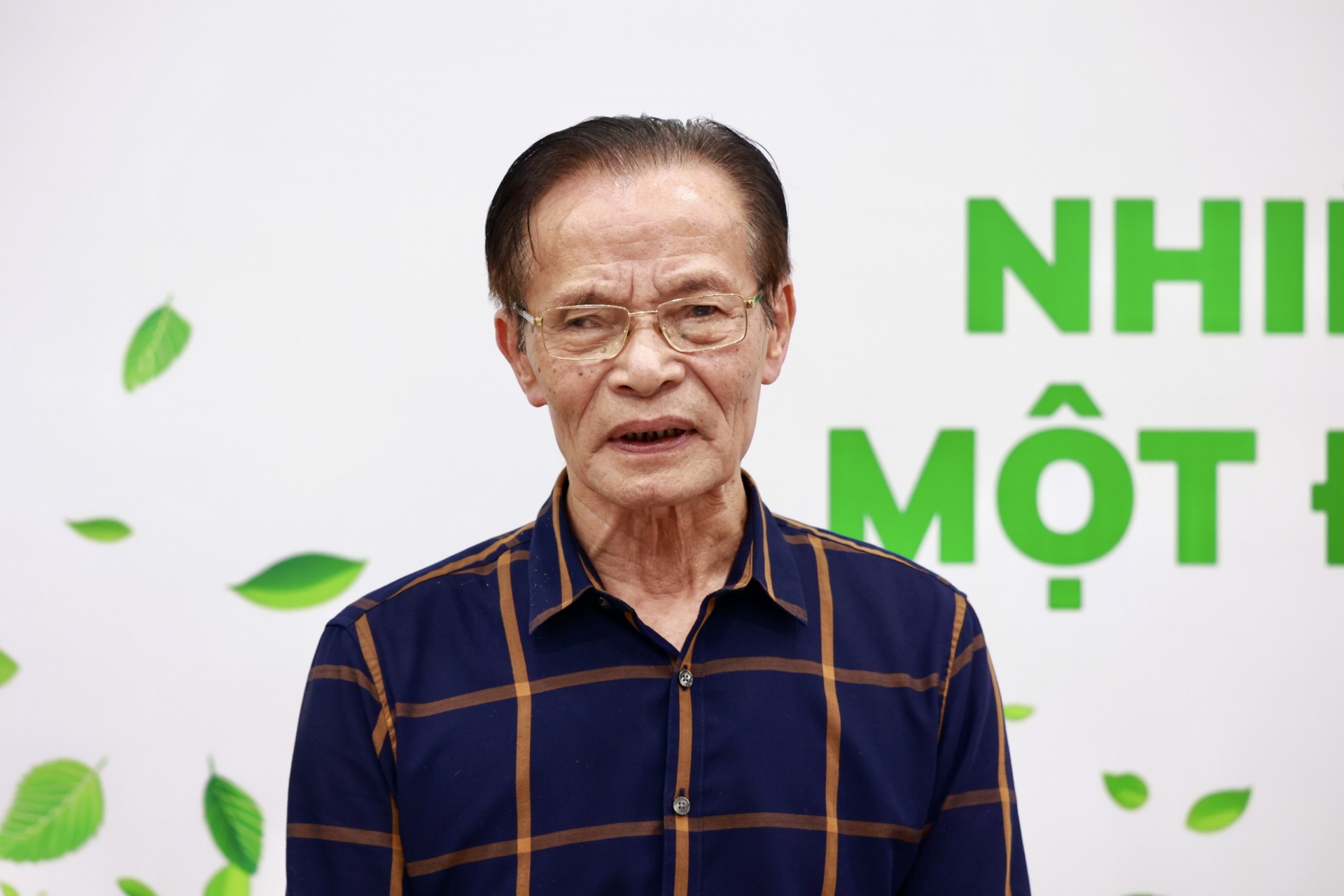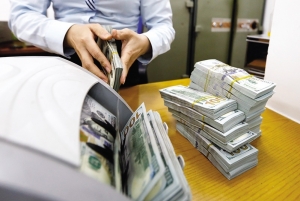The prospects for foreign exhange market for rest of 2024
 |
| Economist Le Xuan Nghia |
What are your thoughts on global stock markets over the past few weeks?
Predictions in early August about a possible recession in the US caused a sharp decline in the US stock market and in other countries, including Vietnam. The Korean stock market even faced what was considered a 'Black Monday' on August 5. The Kospi index dropped by 8.1 per cent, triggering a 20-minute halt in trading due to the significant decline.
However, more favourable reports about US economy came out shortly after. Analysts then concluded that the US economy will not fall into a recession and might experience a 'soft landing'. This helped the US stock market recover quickly, along with the Vietnamese stock market.
The EU and Japanese economies have also been recovering, with the Purchasing Managers' Index index remaining above 50 for several months. This has led analysis to predict that the global economy is still in a slow recovery phase, particularly with global inflation decreasing fairly quickly.
Therefore, analysis predicts that interest rates in the US and globally will soften, signalling the end of monetary tightening and a gradual shift towards monetary easing to accelerate a recovery. This is a significant factor leading to the depreciation of the dollar, with the US-Index dropping to 112 and expected to slide further to around 100.
Given the global development landscape, how will it affect Vietnam's forex market?
Based on the above analysis, there are two external factors that could significantly impact Vietnam's forex market.
First, global inflation has decreased, leading to a downward trend in import prices, except for transportation costs, particularly for goods passing through the Gulf due to the Israel-Palestine conflict.
Second, the US dollar has depreciated. These two factors have soothed the exchange rate pressure on the VND and are also expected to alleviate inflationary pressure in Vietnam in the upcoming period through lower import prices for raw materials.
Another factor that has also affected the exchange rate is interest rates. The State Bank of Vietnam's regulatory interest rates have been reduced over the past few months.
The OMO rate has decreased from 4.5 per cent to 4.25 per cent and is currently at 4 per cent. However, interbank market rates and overnight rates remain high, hovering around 4 per cent, and deposit rates are trending slightly upward. This indicates that Vietnam's monetary policy remains flexible and aims to control inflation.
With the current monetary policy, along with the above external factors, we can predict that Vietnam's exchange rate will remain stable from now until the year-end. The VND might even appreciate slightly compared to the beginning of the year. This would be highly valued by foreign investors.
Based on the progress made since the beginning of the year, particularly in recent months, we can predict that economic growth might reach the initial government and National Assembly target of 6.5 per cent.
The exchange rate for the rest of this year and into next year will likely remain stable, and the depreciation of the VND against the US dollar will likely be around 3 per cent next year.
Besides exchange rates and interest rates, what other topical issues have attracted significant attention in the economy?
Aside from interest rates and exchange rates, the biggest issue currently concerning businesses is the liquidity story. From a demand perspective, private sector investment and domestic consumption are still sluggish, greatly impacting medium- and long-term economic growth, especially equity investments.
In addition, the money supply availability (such as cash, demand deposits, time deposits, savings, traveller’s checks, money market funds, and more) remains low, particularly with a sharp decline in deposits from businesses. Credit growth has improved but remains minimal due to businesses facing challenges in securing capital for medium- and long-term investments, and also due to stringent credit conditions such as collateral and cash flow requirements.
To address these challenges and bolster liquidity for the economy, there are three critical areas that financial institutions need to focus on.
First is exports, especially agricultural exports, which are becoming increasingly significant in the export structure of local businesses. Currently, trade promotions for agricultural, forestry, and fishery products remain weak. It, therefore, requires proper attention in terms of policy introduction to promote bank credit to align with trade trends.
Second, the real estate sector accounts for a large portion of the economy's capital flow, particularly medium- and long-term capital. According to estimates, credit and corporate bonds for real estate could account for 30 per cent or more of total credit. This sector is currently facing bottlenecks, mainly due to administrative procedures and the regulatory framework.
In the near future, the enforcement of three key laws regulating this field - the Housing Law, the Land Law and Law on Real Estate Business - and related decrees could present a significant recovery opportunity and a reliable capital stream due to the availability of collateral and high demands for affordable housing and social housing.
Third is consumer lending that is currently very low in Vietnam compared to many other countries due to limited customer risk assessment capacity. However, there are now fundamental advantages for developing and expanding this sector.
The national database is being developed and gradually improved, providing a valuable asset for commercial banks to use AI to make banking data and structural analysis, expand marketing, and rate customers.
This will make consumer lending much safer. Vietnam is eyeing fairly high growth in people's incomes. Stimulating consumer lending will boost domestic production and serve as a foundation for future economic growth.
By focusing on these three areas, credit growth will help drive economic growth, stabilise interest rates, and ensure sustainable and effective exchange rates.
The exchange rate contributes to enhancing the position of Vietnam's currency in international transactions, aligning with multipolarity trends in international investment and trade both at present and in the future.
 | Expert predictions on forex in 2024 Experts forecast a more moderate exchange rate movement in 2024 despite current stormy conditions. |
 | Commercial banks' credit growth picture in Q1 through expert lens Le Hoai An, a banking consultant and trainer at Integrated Financial Solutions, talked with Hong Dung on the credit landscape in the first quarter of this year, its impacts on banking stocks' performance, and how some banks have tackled current challenges to achieve better growth . |
 | Upbeat signs in business development: data expert Phi Huong Nga, head of the Industry and Construction Statistics Department under General Statistics Office (GSO), elaborates the positive signs and hardships in the current development landscape, and the proposals to scale up support for business development. |
What the stars mean:
★ Poor ★ ★ Promising ★★★ Good ★★★★ Very good ★★★★★ Exceptional
Related Contents
Latest News
More News
- Vietnam’s private capital market enters selective recovery phase (January 19, 2026 | 11:49)
- Vietnam’s credit quota seen as safeguard for banking discipline (January 19, 2026 | 10:00)
- Miza Nghi Son green bond marks milestone for sustainable finance (January 19, 2026 | 09:51)
- Higher 2026 growth target puts pressure on credit framework (January 19, 2026 | 09:00)
- VN-Index could reach 2,040 points in 2026 (January 16, 2026 | 16:41)
- Vietnam’s corporate bond market set for a more positive 2026 (January 15, 2026 | 14:10)
- Foreign sentiment towards Vietnam turns more positive (January 15, 2026 | 11:08)
- Wealth management faces skills gap as investor confidence lags (January 13, 2026 | 10:23)
- HDBank completes $100 million international green bond scheme (January 12, 2026 | 16:28)
- Vietnam’s IPO market eyes revival in 2026 (January 09, 2026 | 17:28)

 Tag:
Tag:


























 Mobile Version
Mobile Version